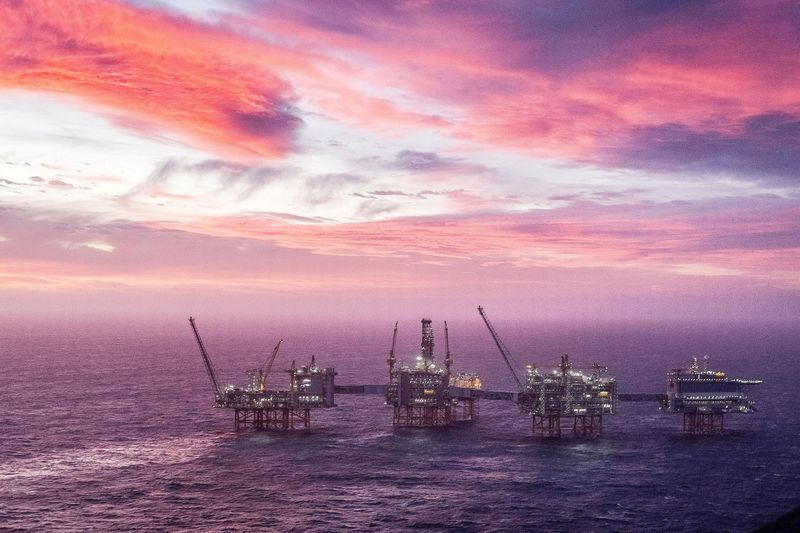By Stephanie Kelly
NEW YORK (Reuters) - Oil prices rose over 1% on Thursday to their highest in nearly three months after U.S. inflation data suggested interest rates in the world's biggest economy were close to their peak.
Brent crude futures rose $1.25, or 1.6%, to settle at $81.36 per barrel. The session peak was $81.57, the highest since April 25.
U.S. West Texas Intermediate crude futures rose $1.14, or 1.5%, to $76.89. The session high was $77.13, the strongest since April 26.
Data on Wednesday showed U.S. consumer prices rose modestly in June and registered their smallest annual increase in more than two years as inflation continued to subside.
The data caused the U.S. dollar index to drop to the lowest since April 2022, which helped to boost oil prices, said John Kilduff, partner at Again Capital LLC in New York.
A weaker dollar makes crude cheaper for holders of other currencies.
"We've had very low inflation numbers today," said Phil Flynn, an analyst at Price Futures Group. Fears that the Federal Reserve was going to raise interest rates had posed a headwind to oil, he said.
Markets expect just one more rate rise. Higher rates can slow economic growth and reduce oil demand.
Oil prices have rallied by over 11% in two weeks, primarily in response to supply cuts from top producers Saudi Arabia and Russia, said Craig Erlam, senior market analyst at OANDA.
The futures contract structure of the global benchmark Brent indicates the market is tightening and that OPEC could be succeeding in its mission to support the market.
The premium of a front-month Brent contract to a six-month February 2024 contract rose to $2.64 a barrel on Wednesday. At the end of June, the front-month contract was at a discount to the six-month contract.
A report by the International Energy Agency (IEA) on Thursday predicted oil demand would hit a record high this year, though broader economic headwinds and interest rate hikes meant the increase would be slightly less than previously anticipated.

An OPEC report also published on Thursday maintained an upbeat world oil demand outlook despite economic weakness. It raised its growth forecast for 2023 and predicted only a slight slowdown in 2024, with China and India expected to keep driving the expansion in fuel use.
In China, however, momentum in the post-pandemic recovery slowed, with exports contracting last month at their fastest pace since the onset of the pandemic three years ago, the country's Customs Bureau showed.